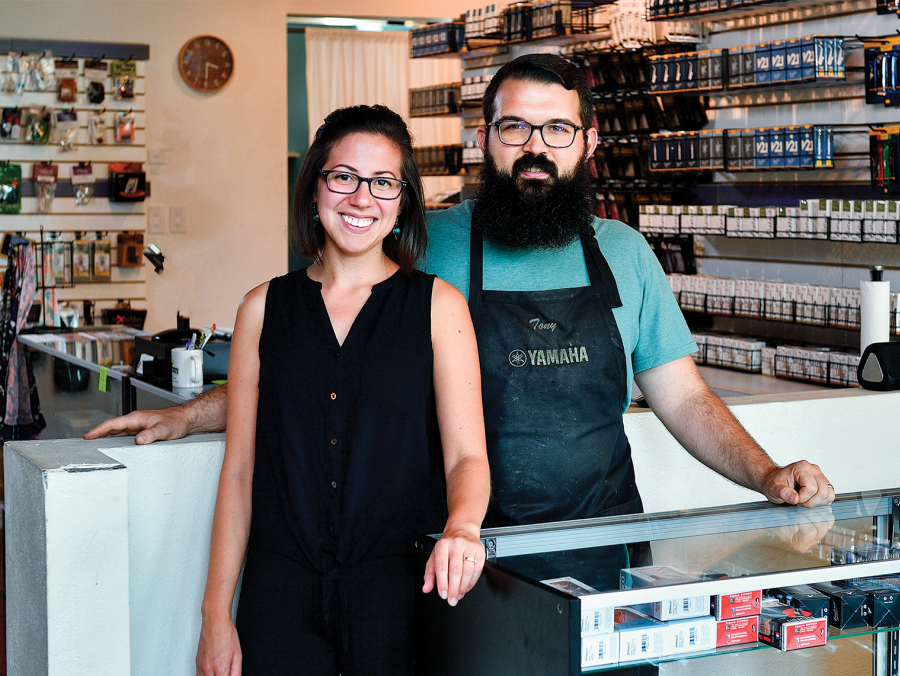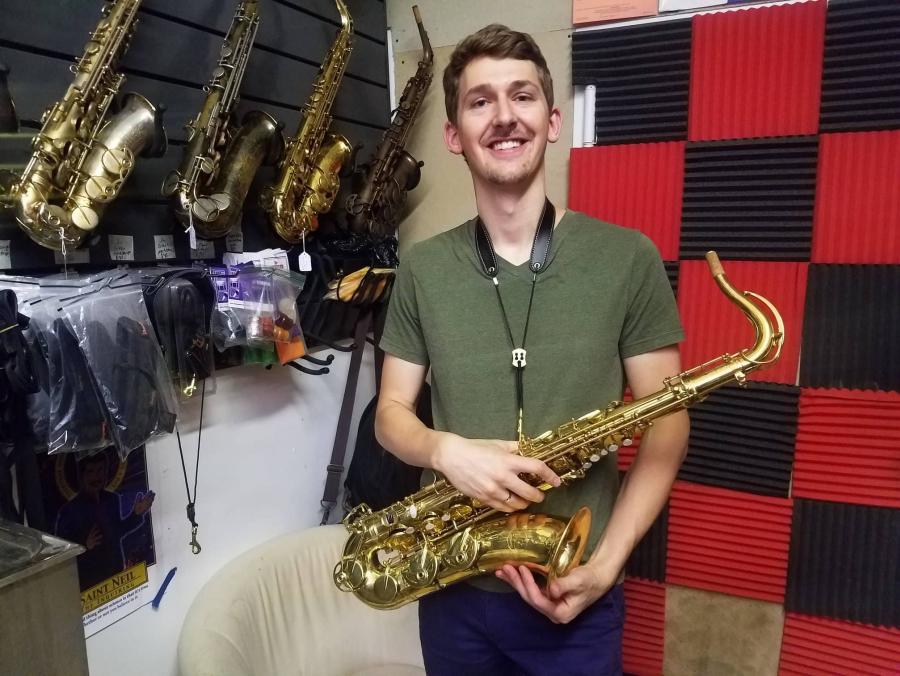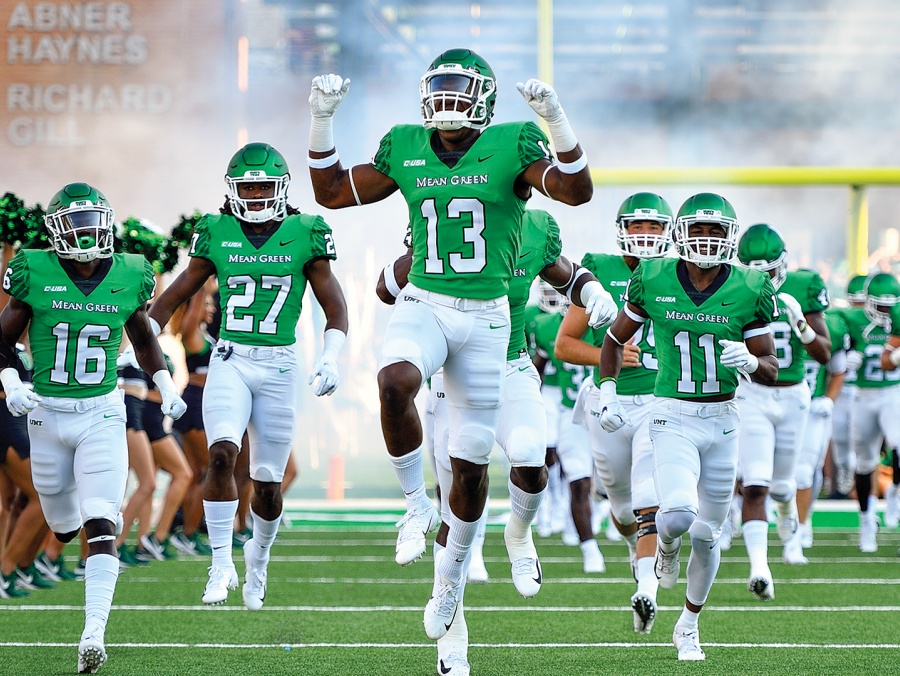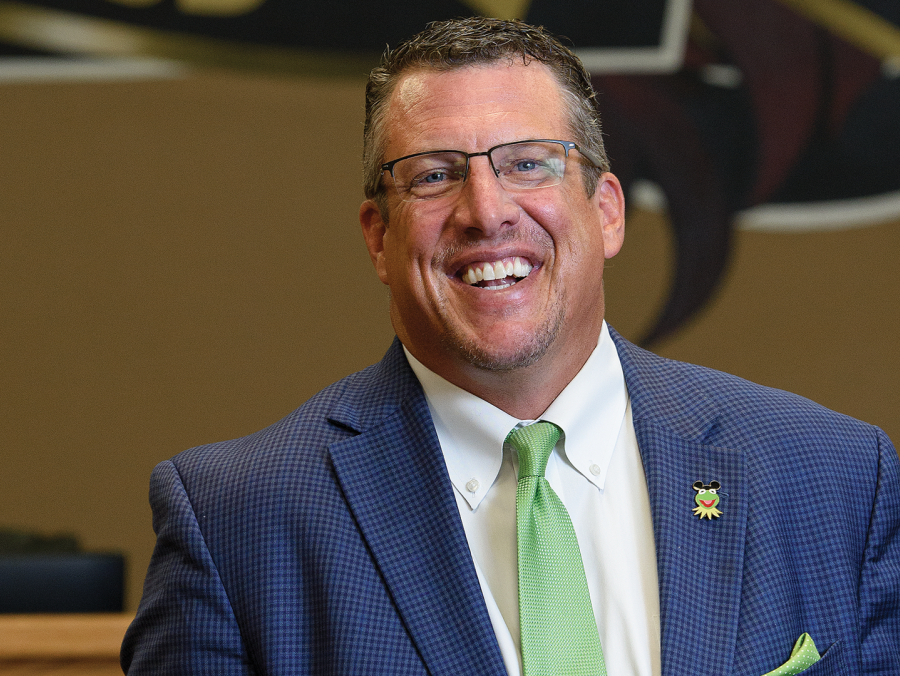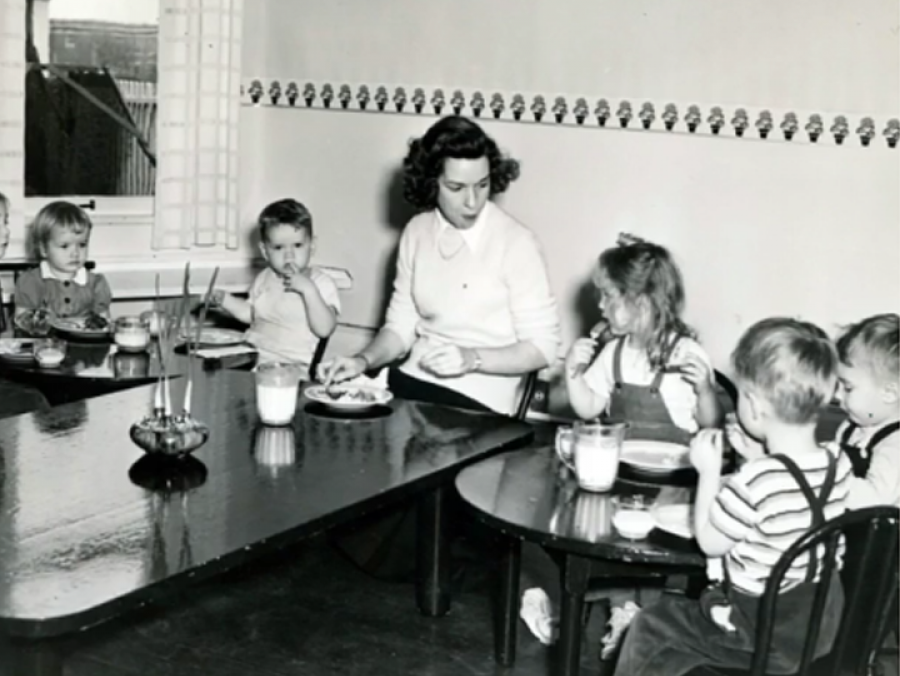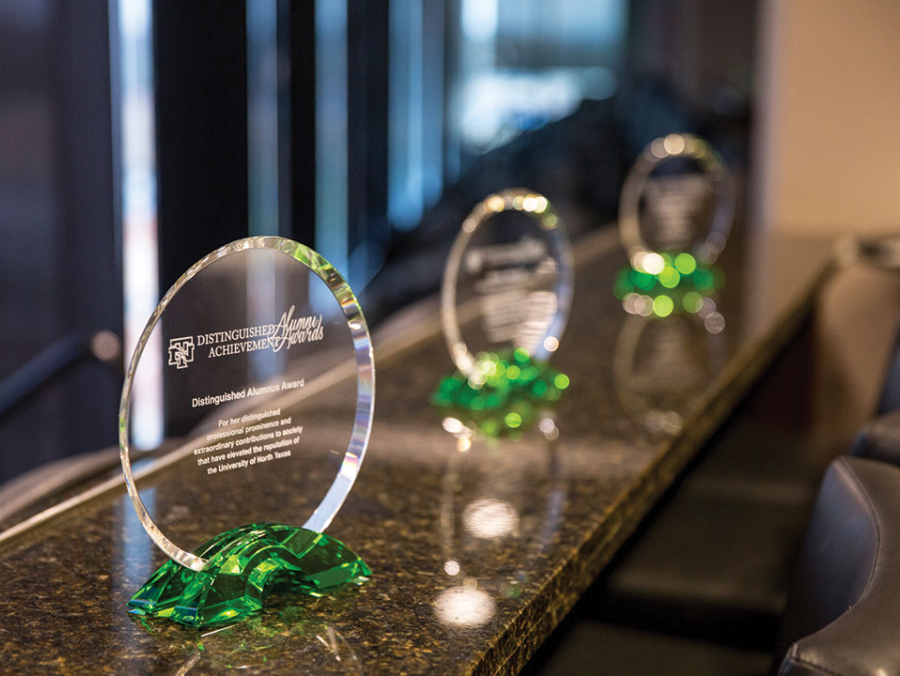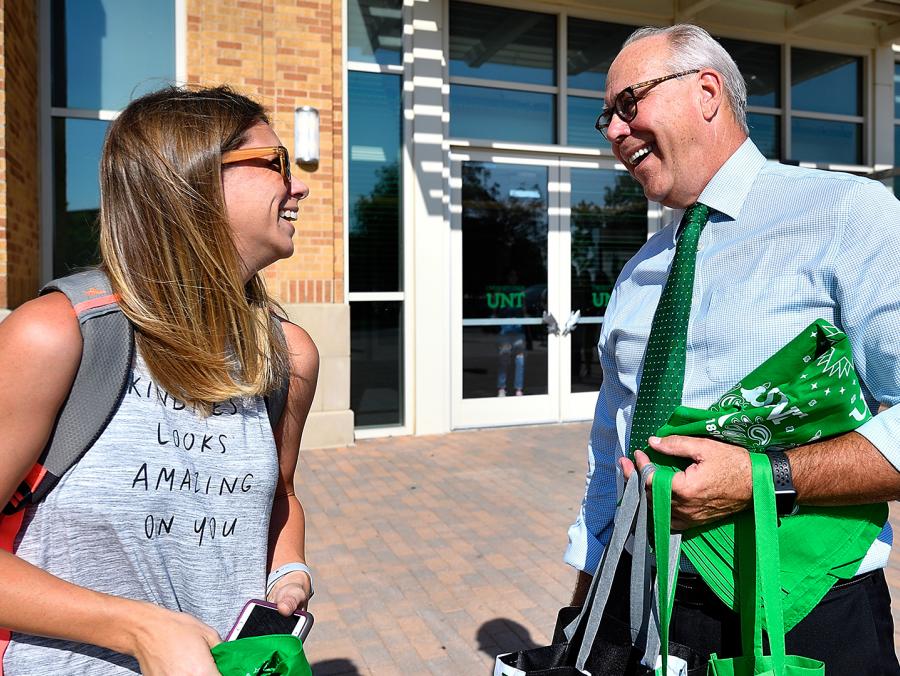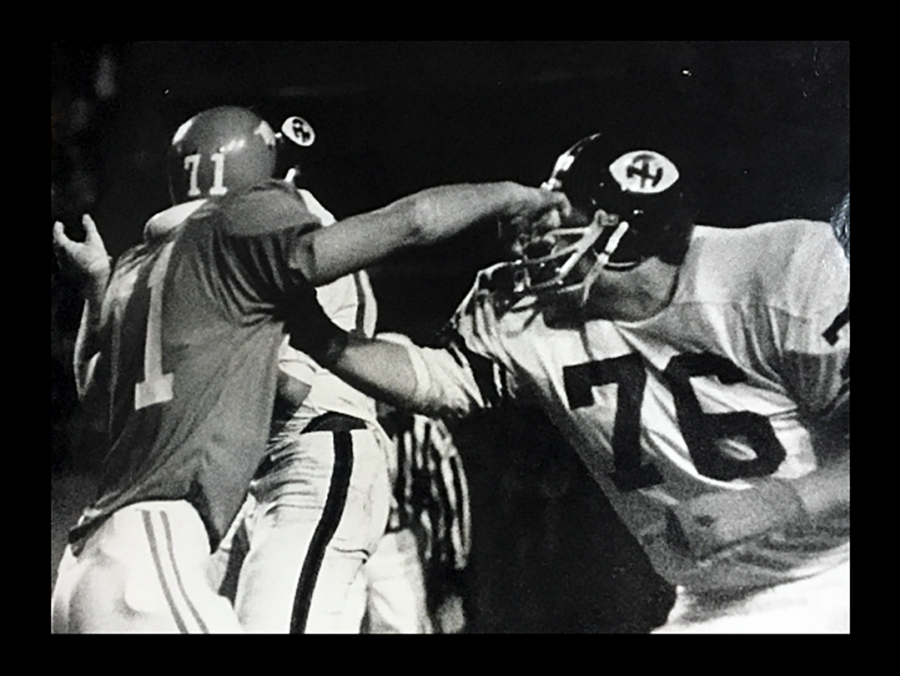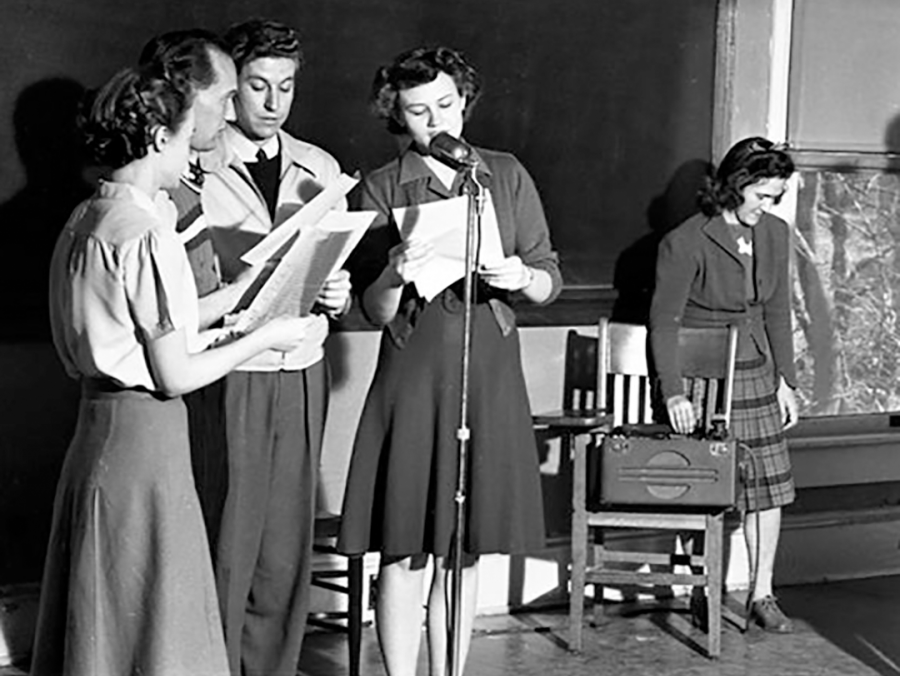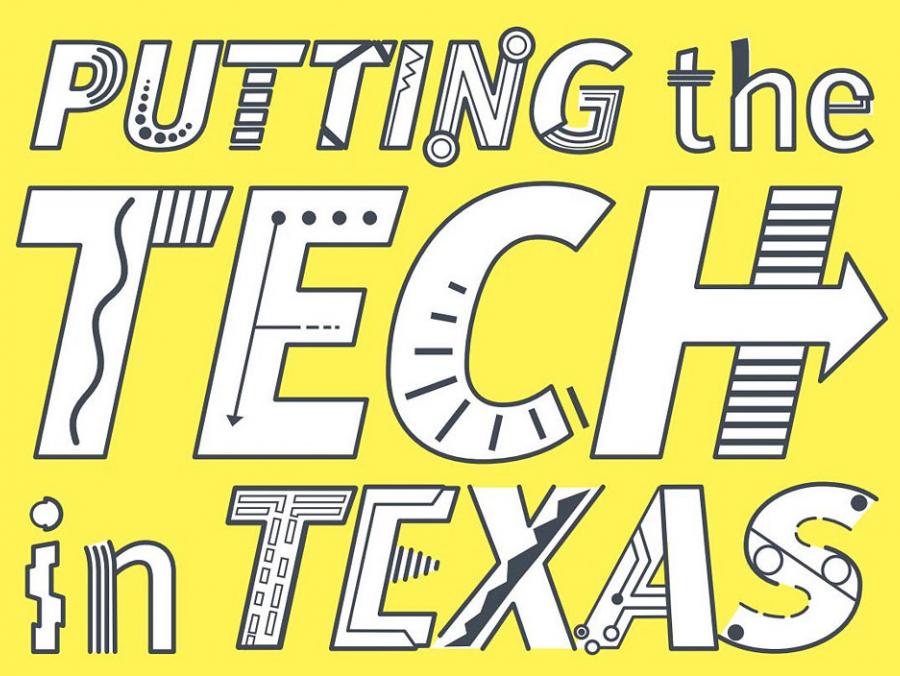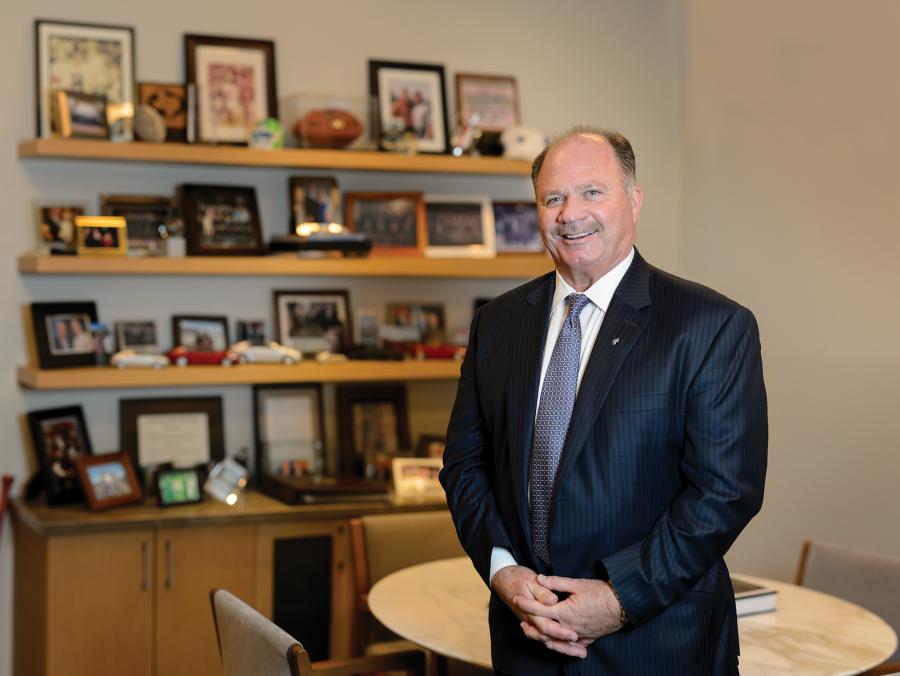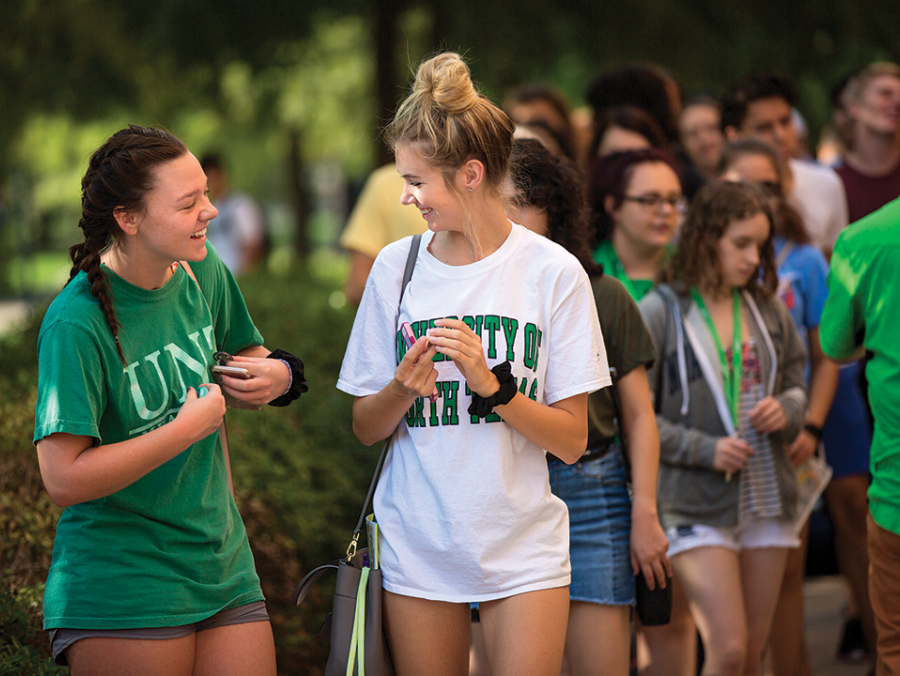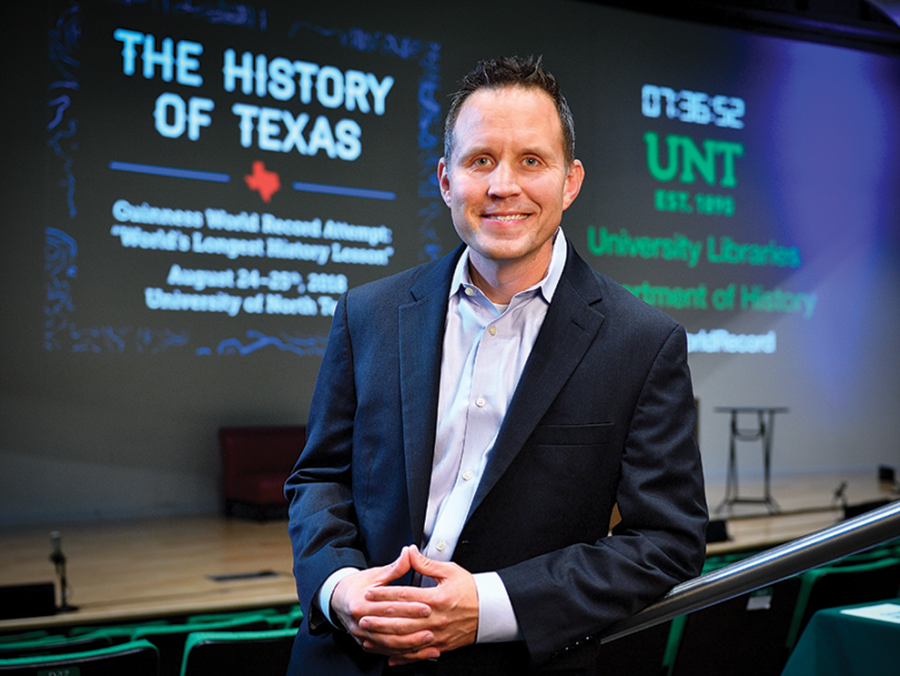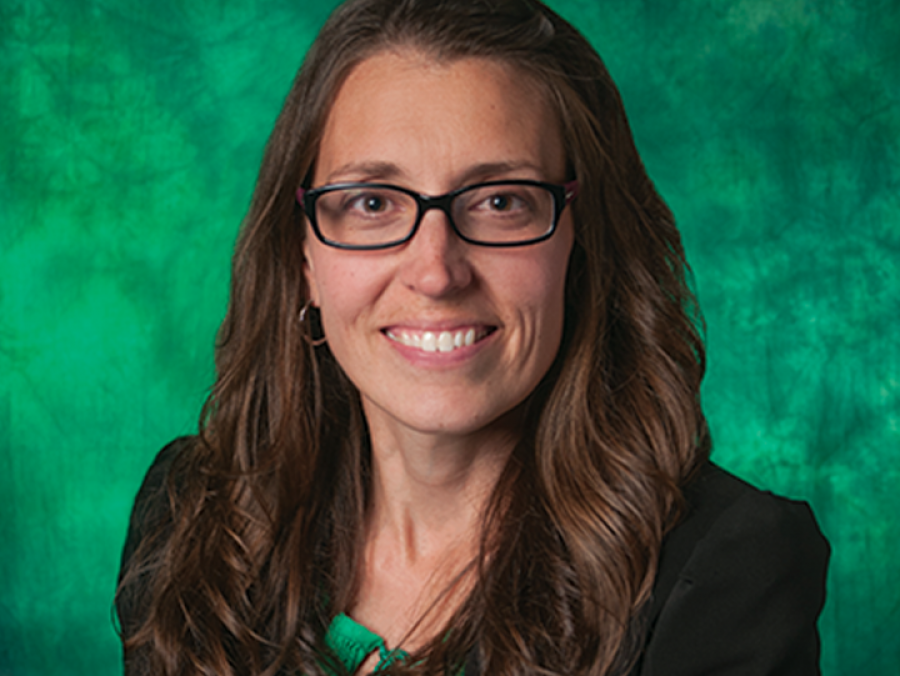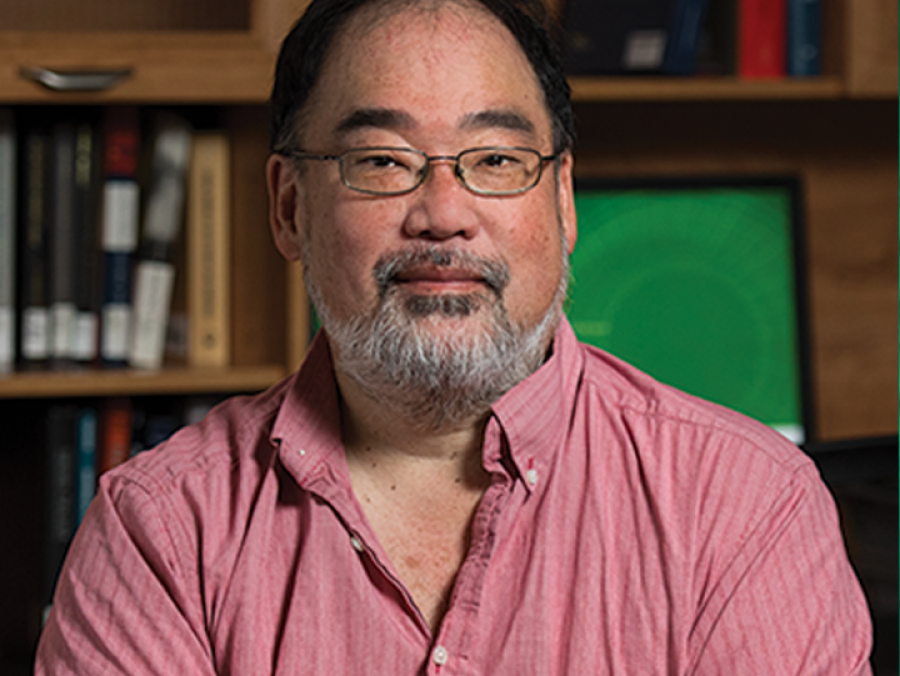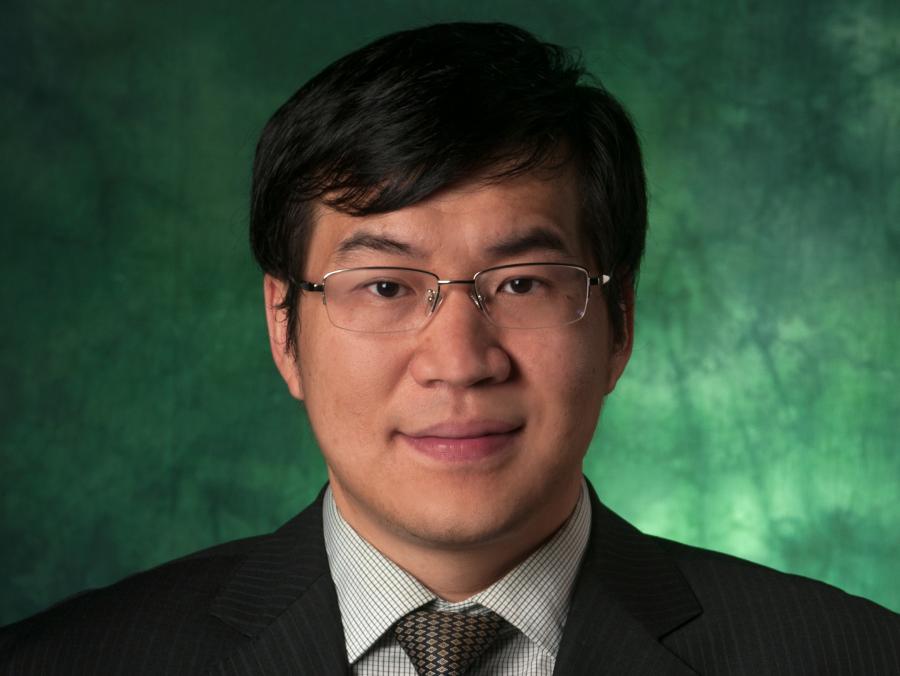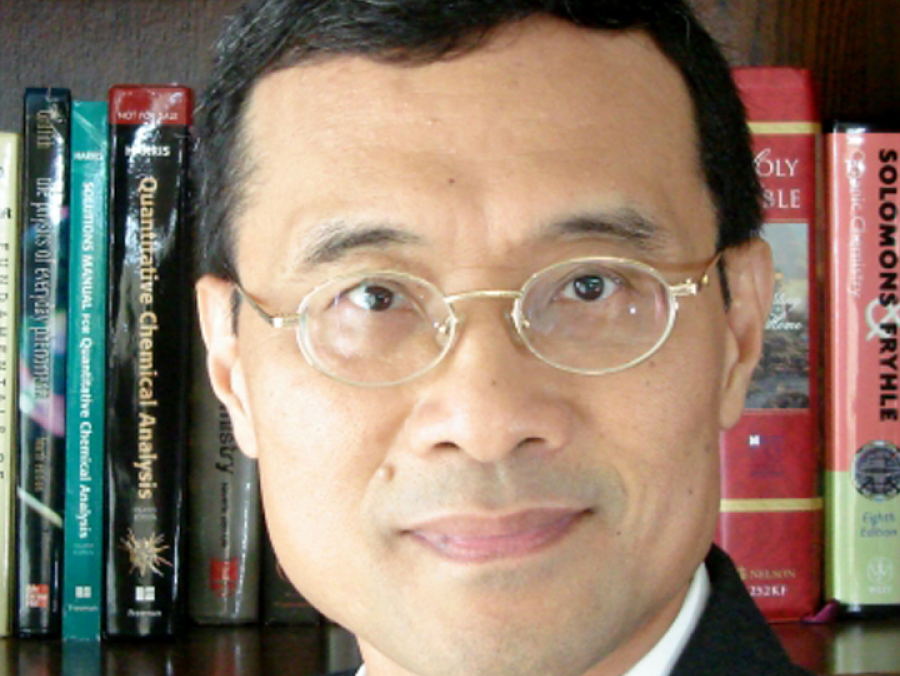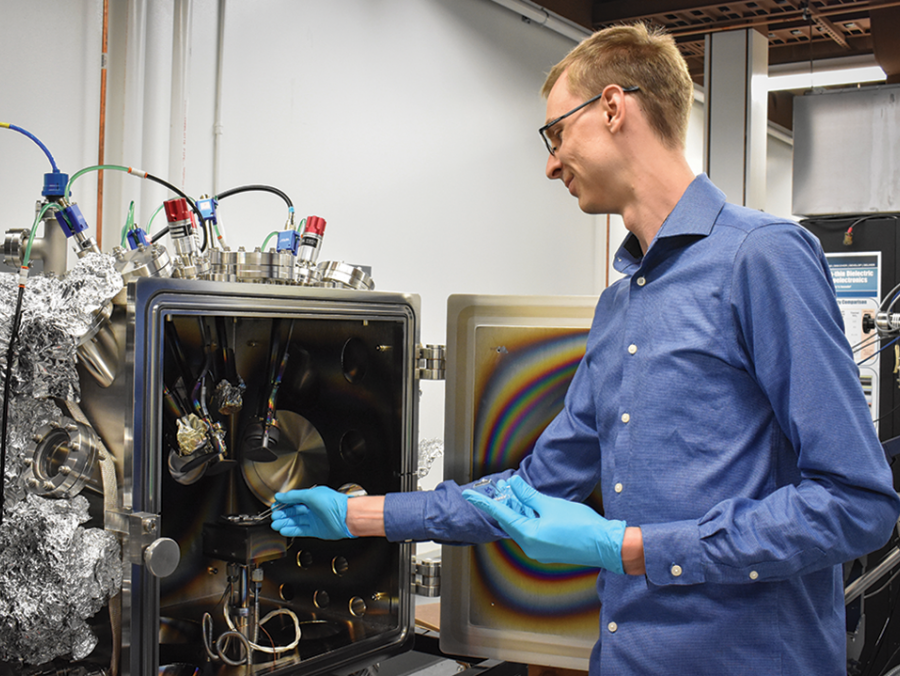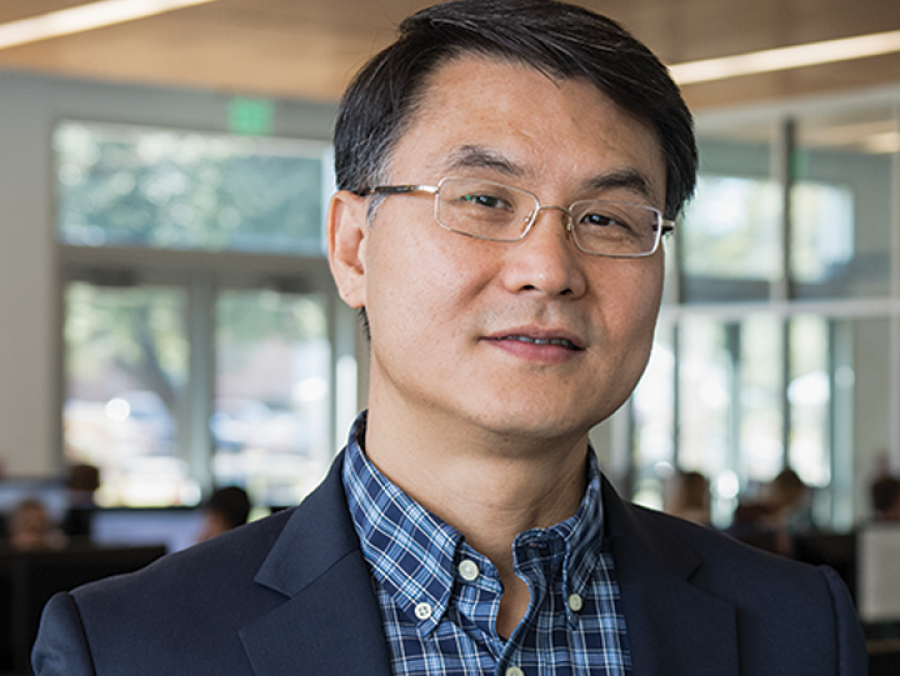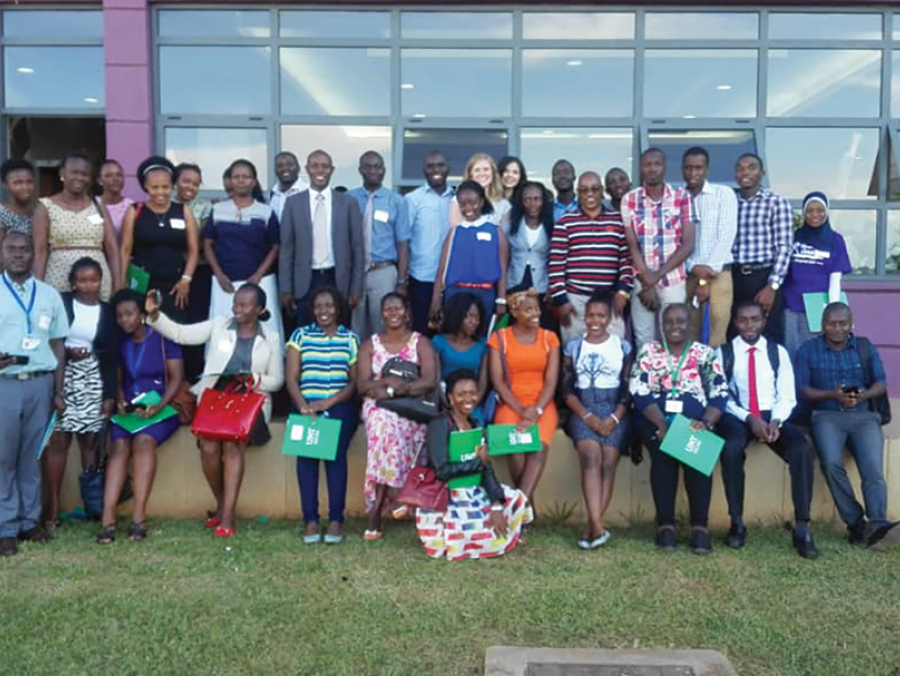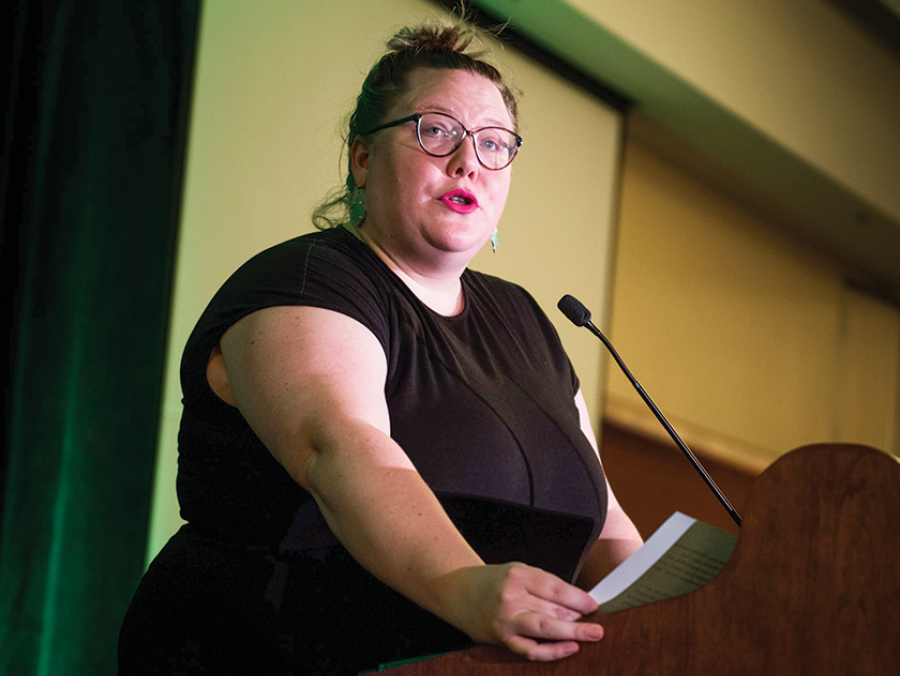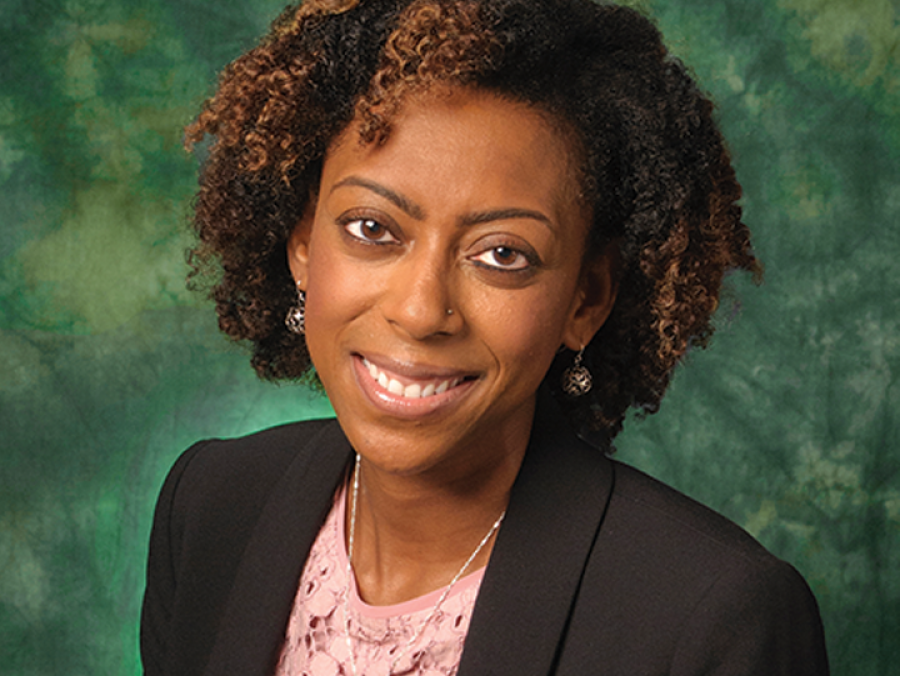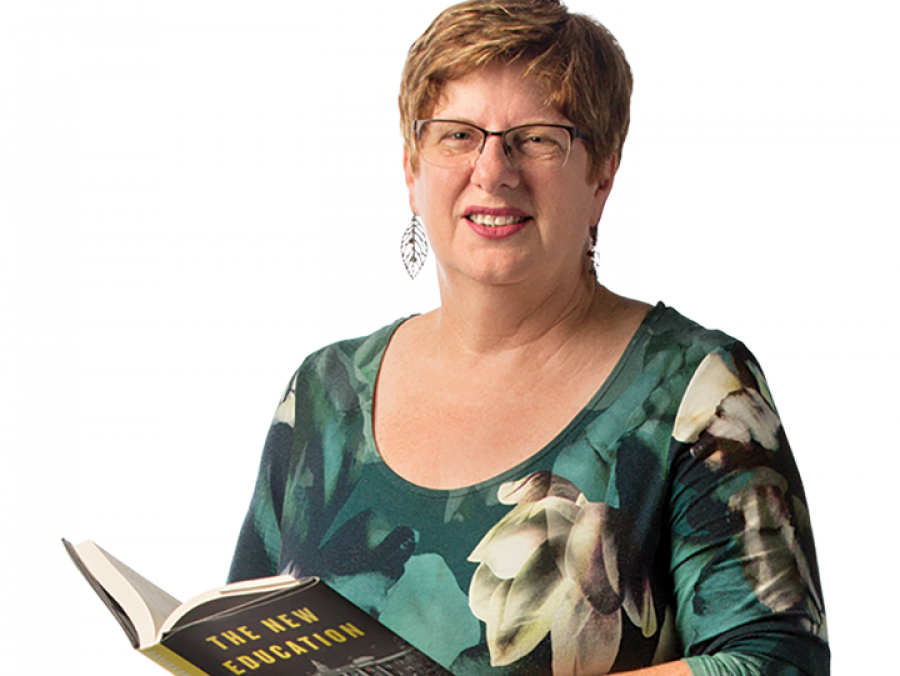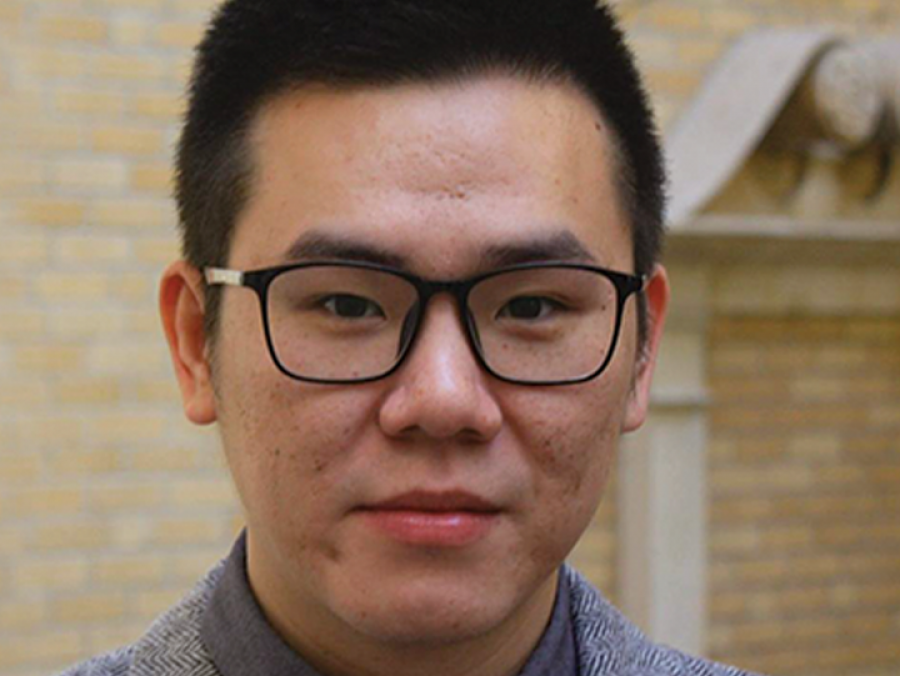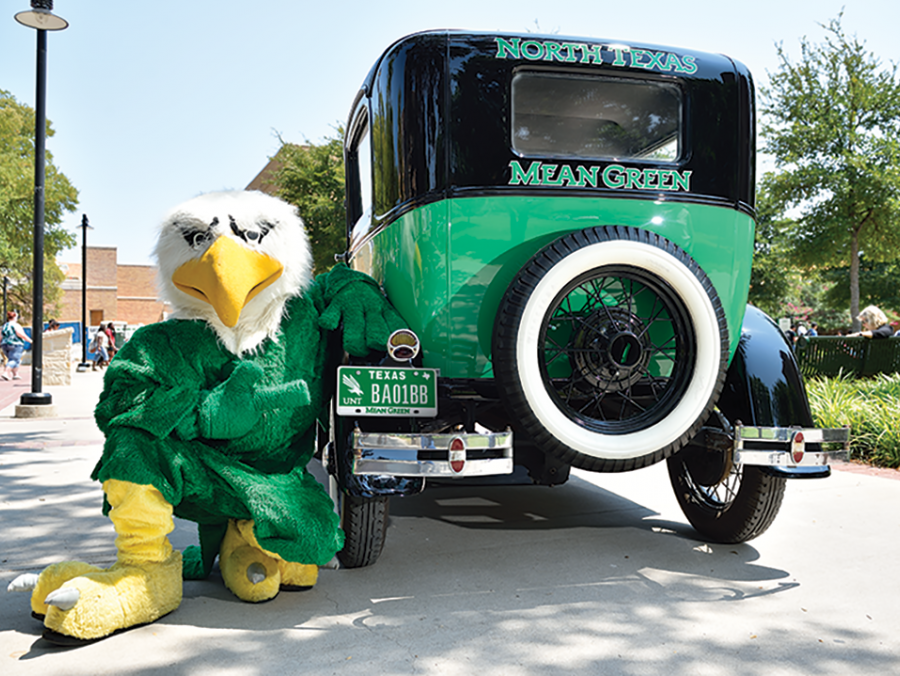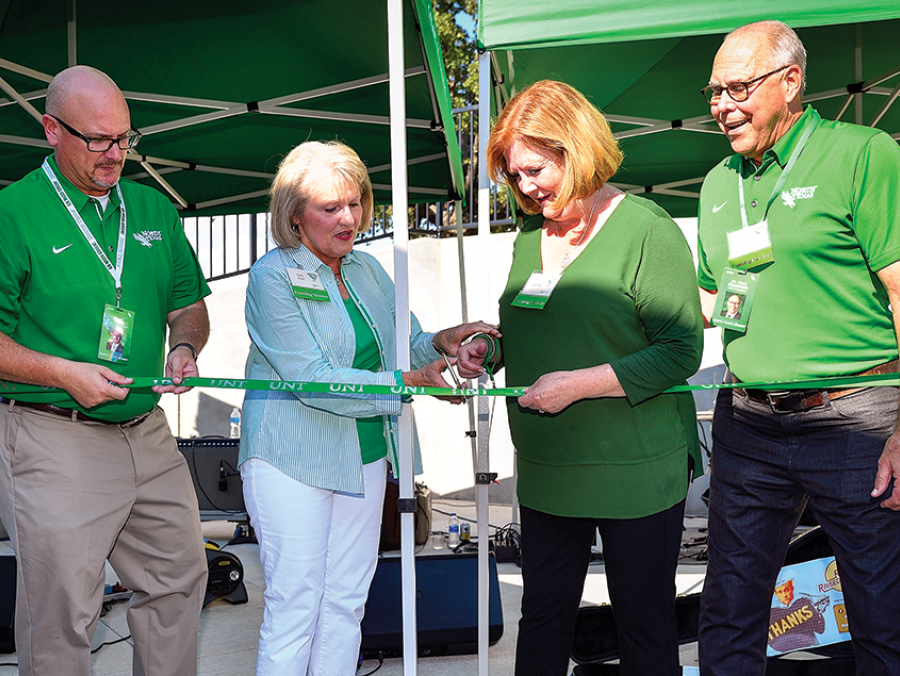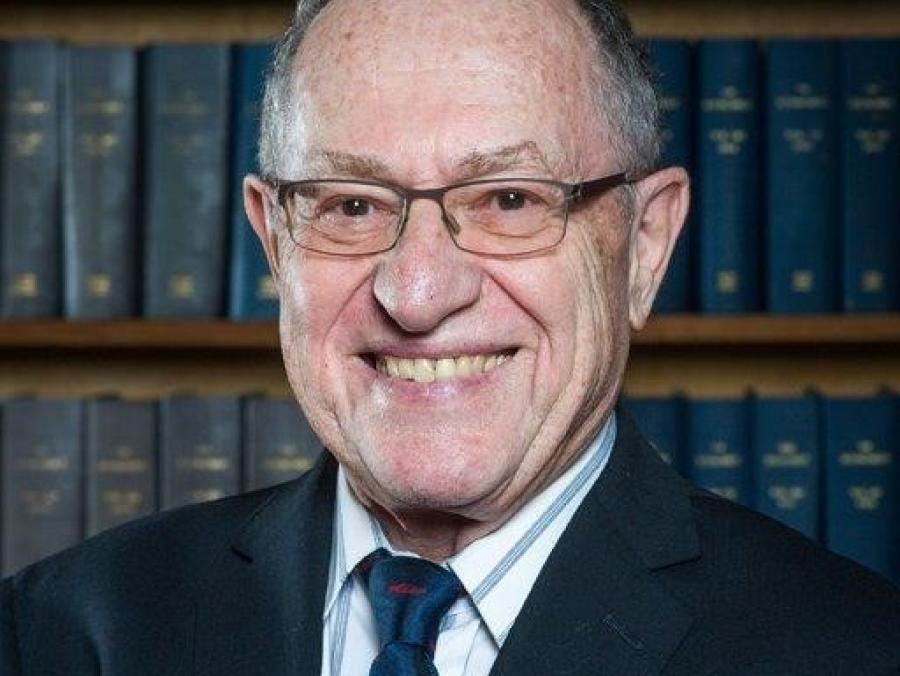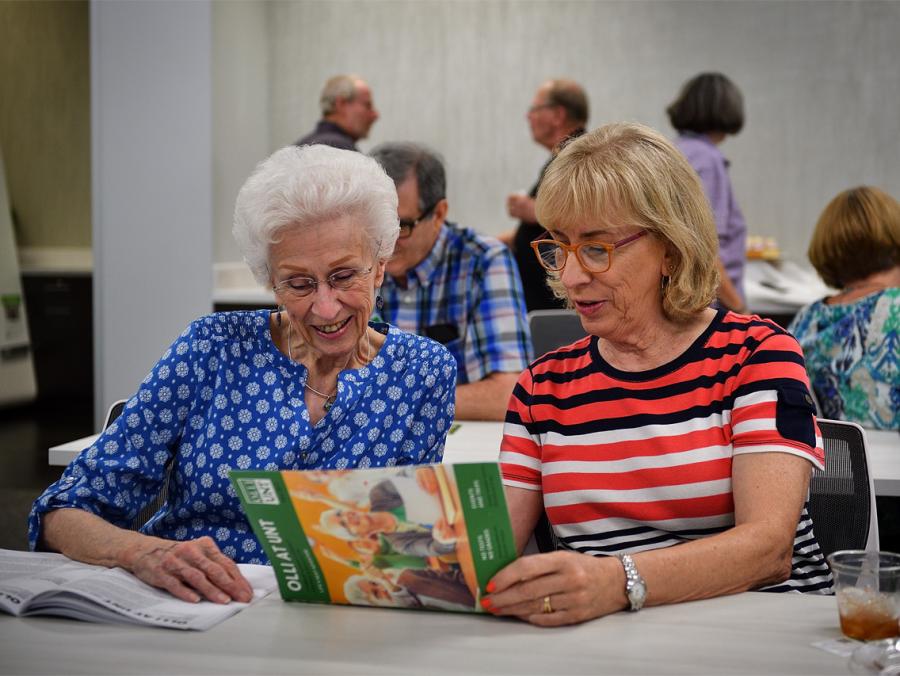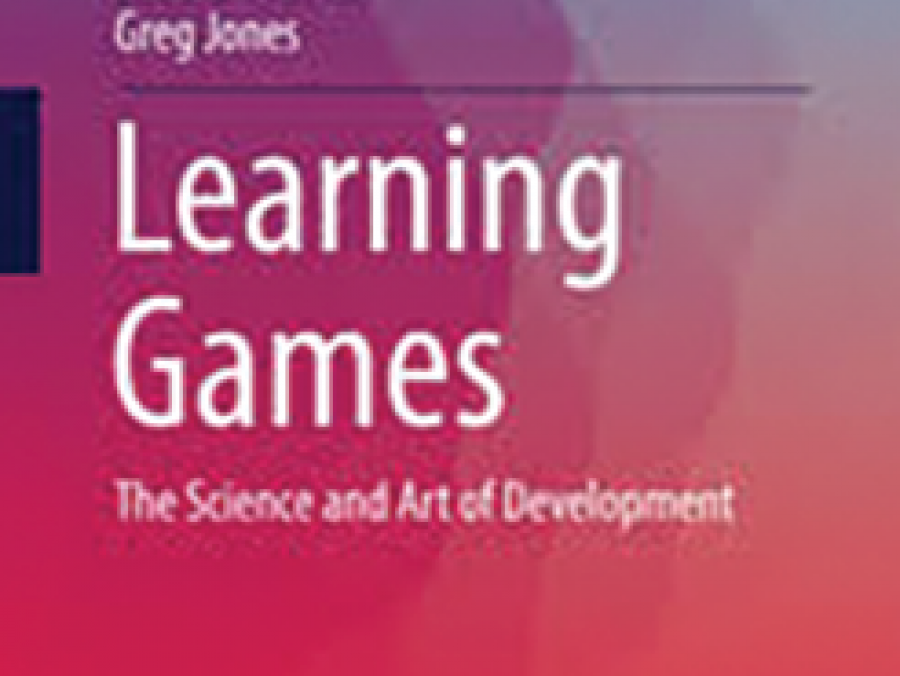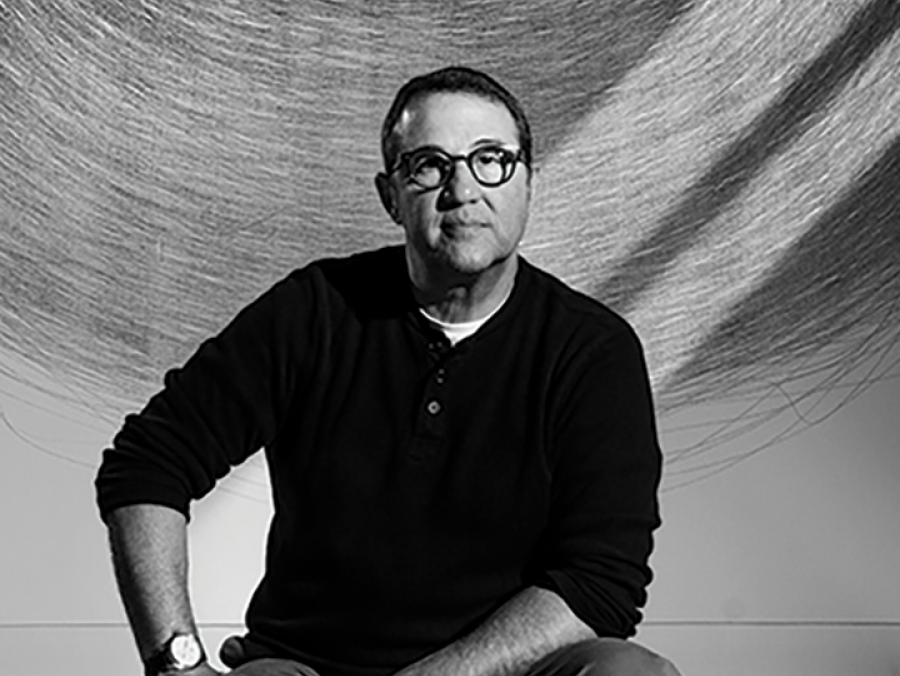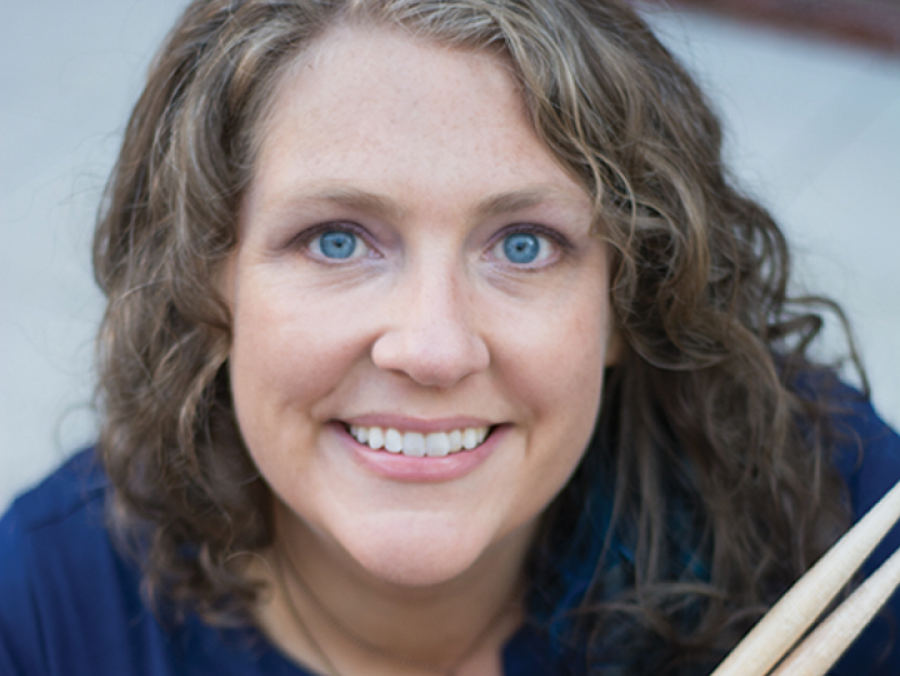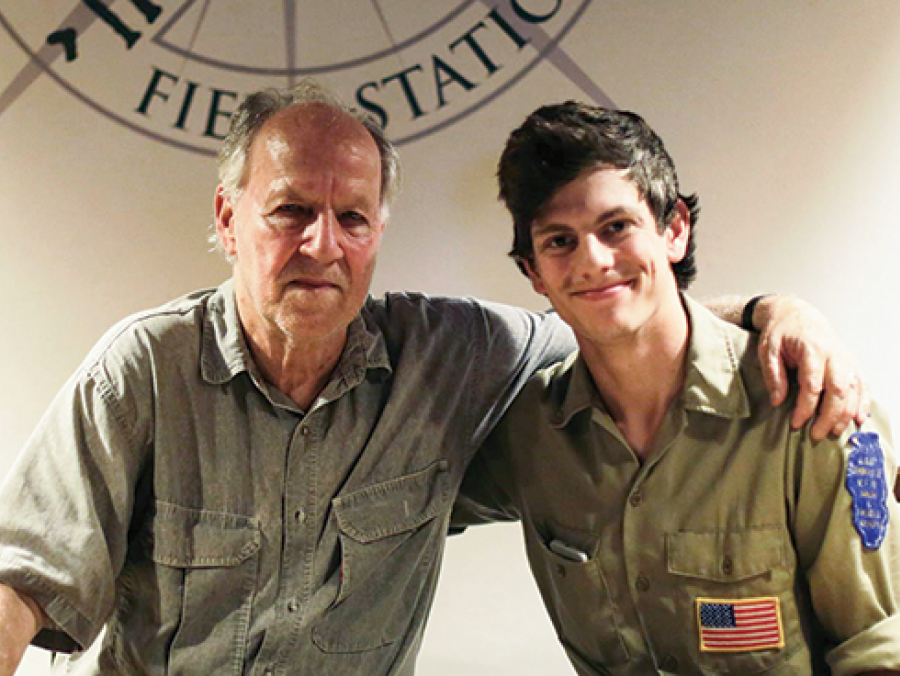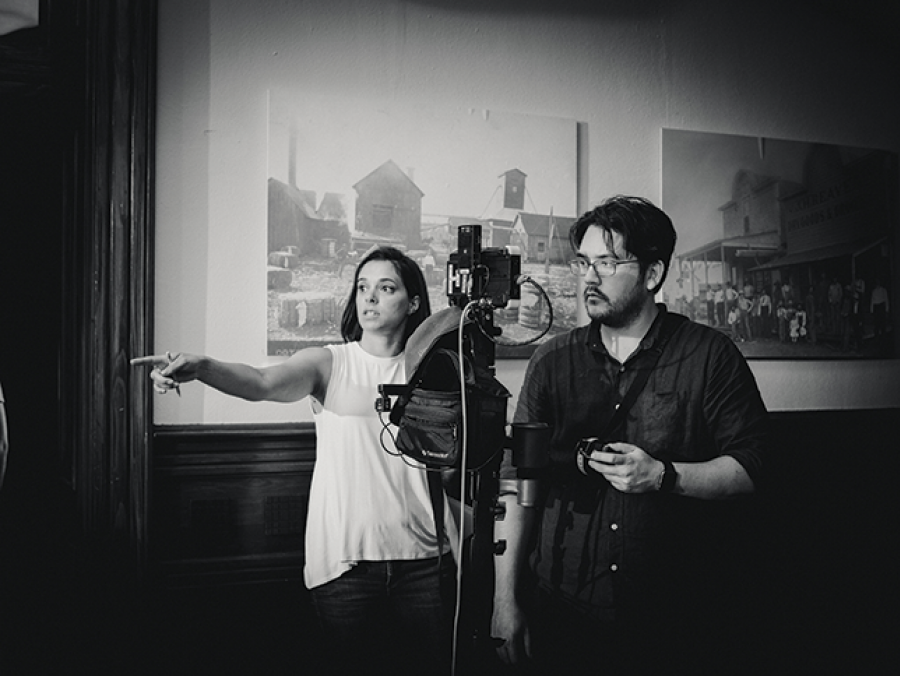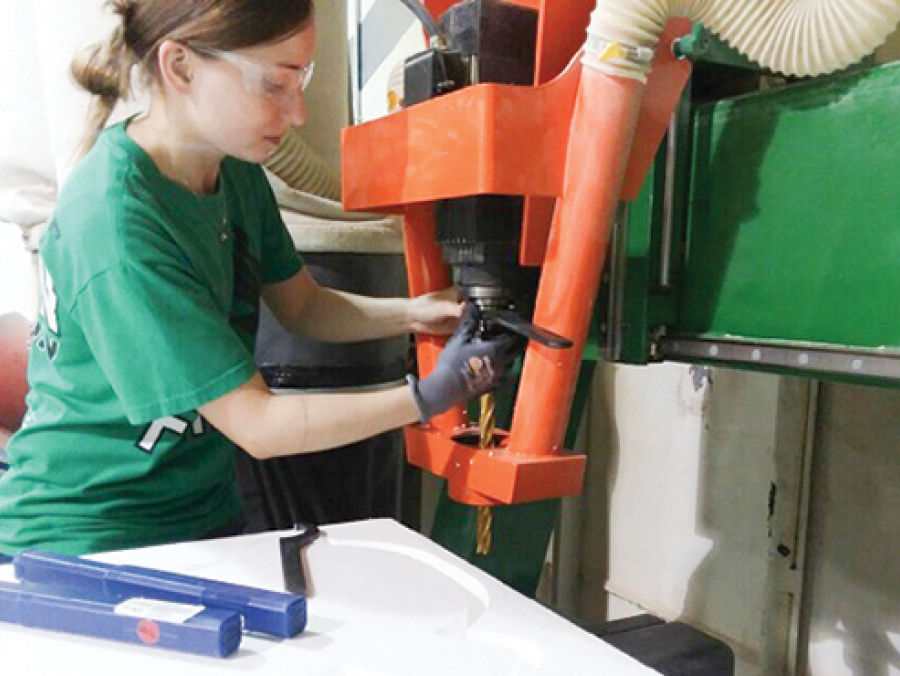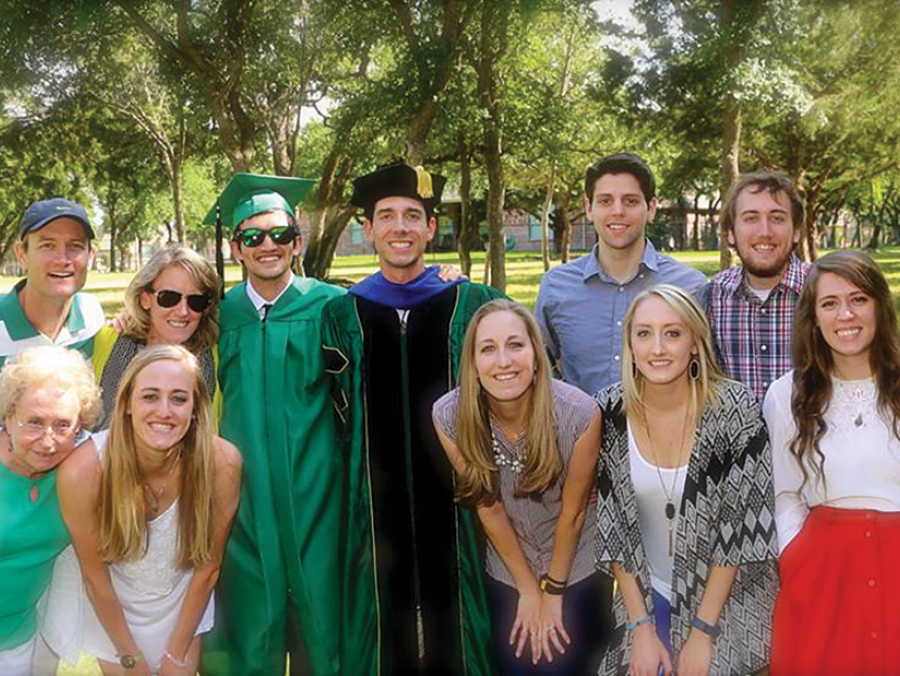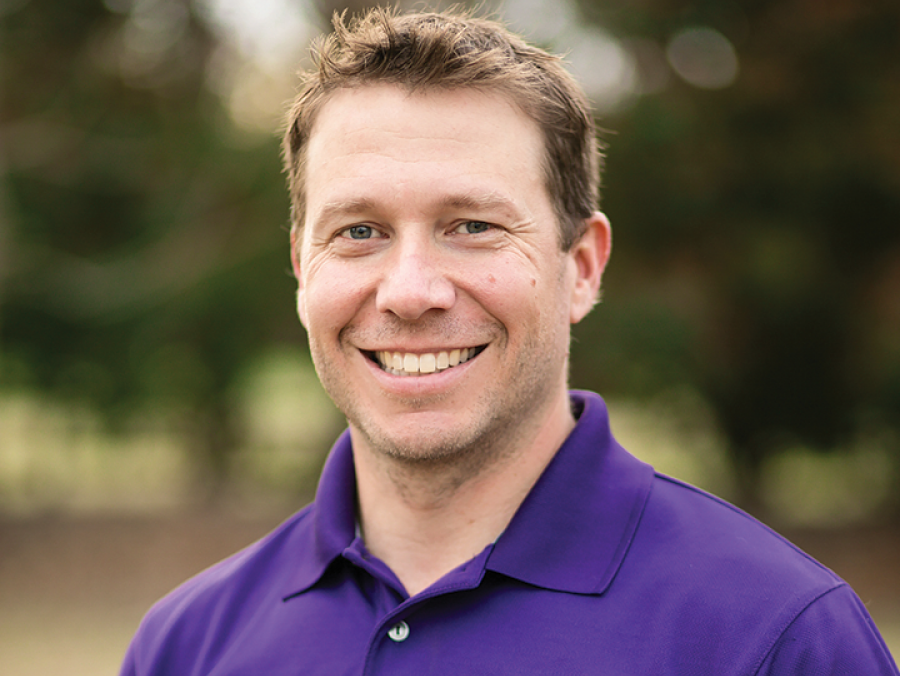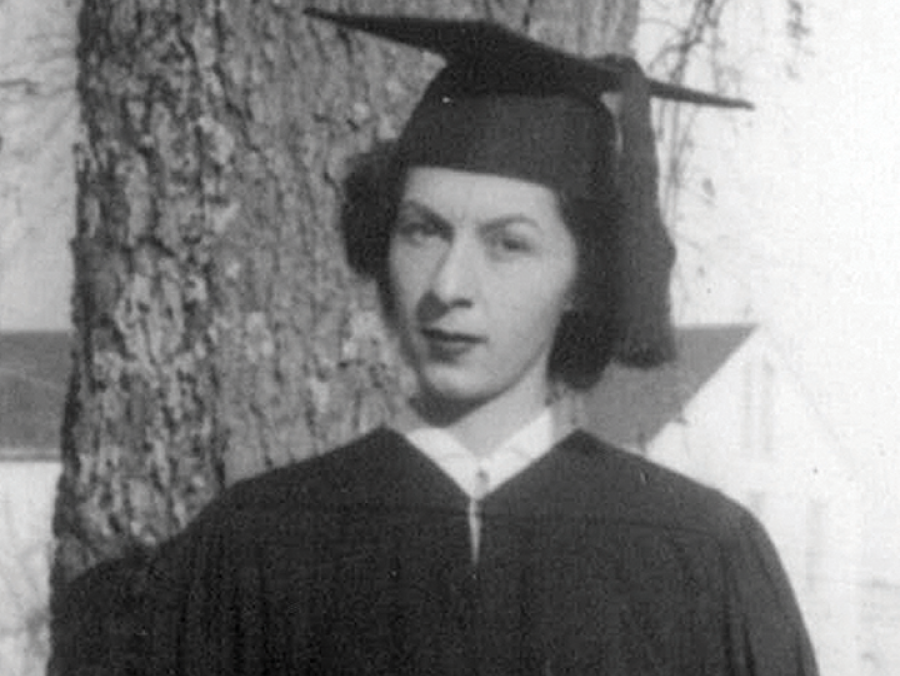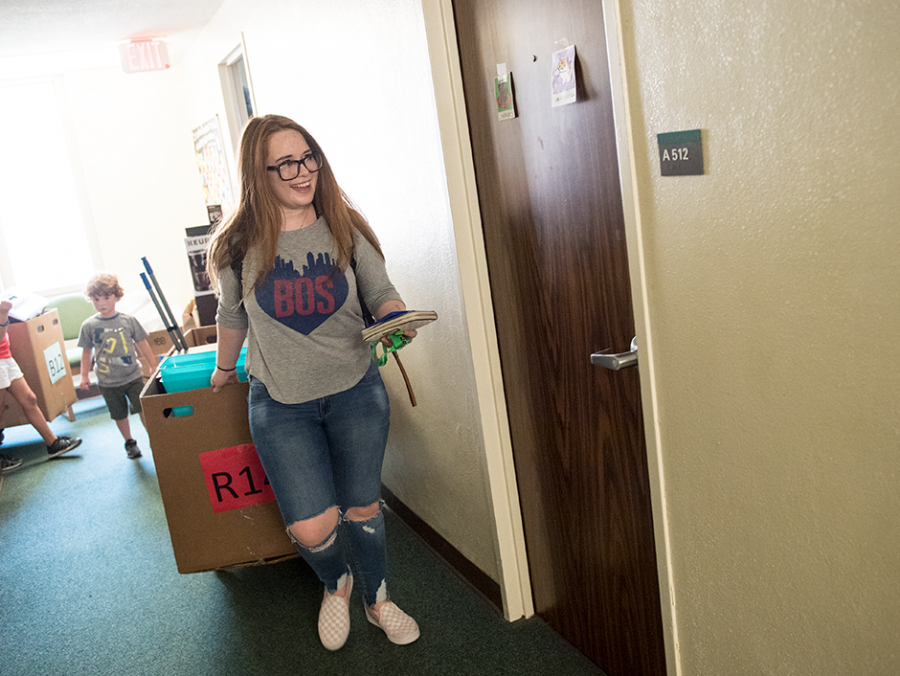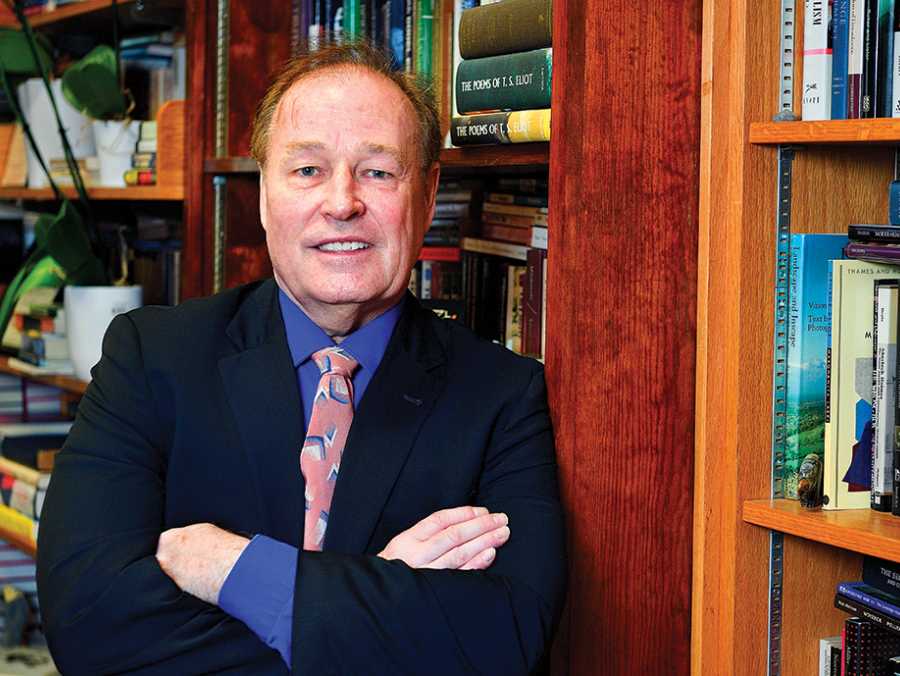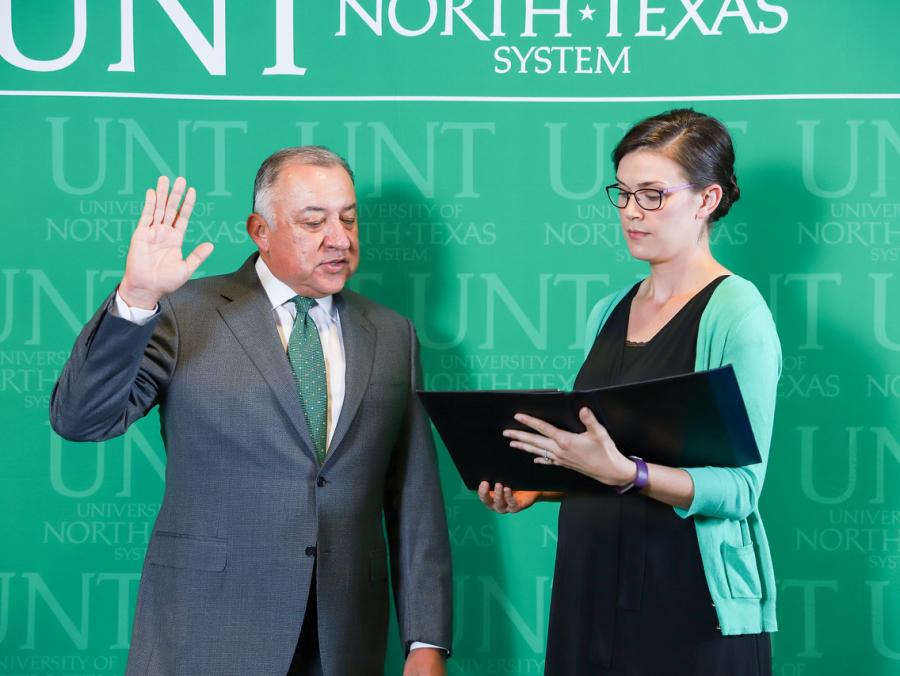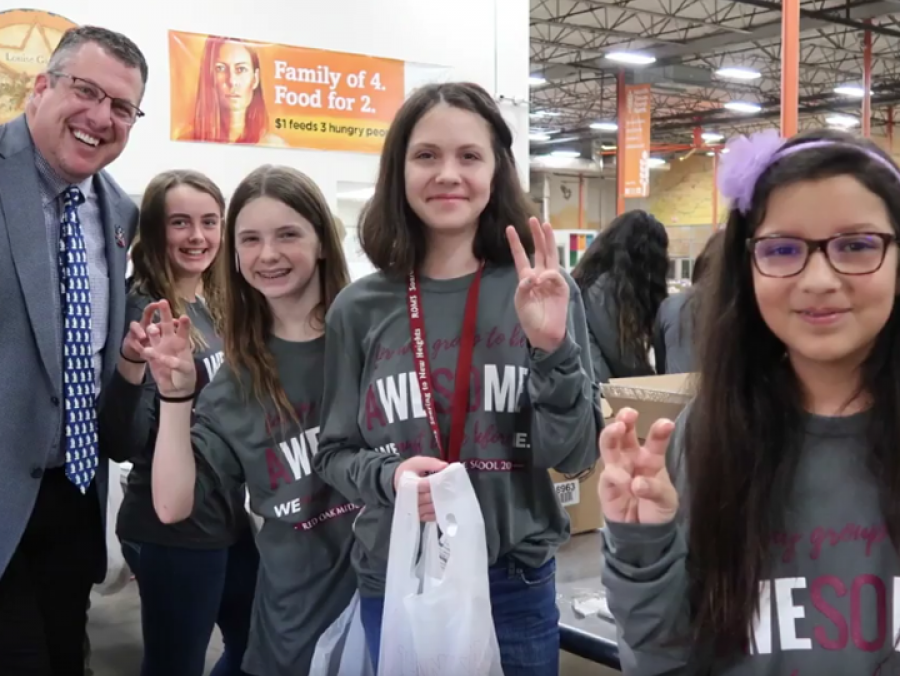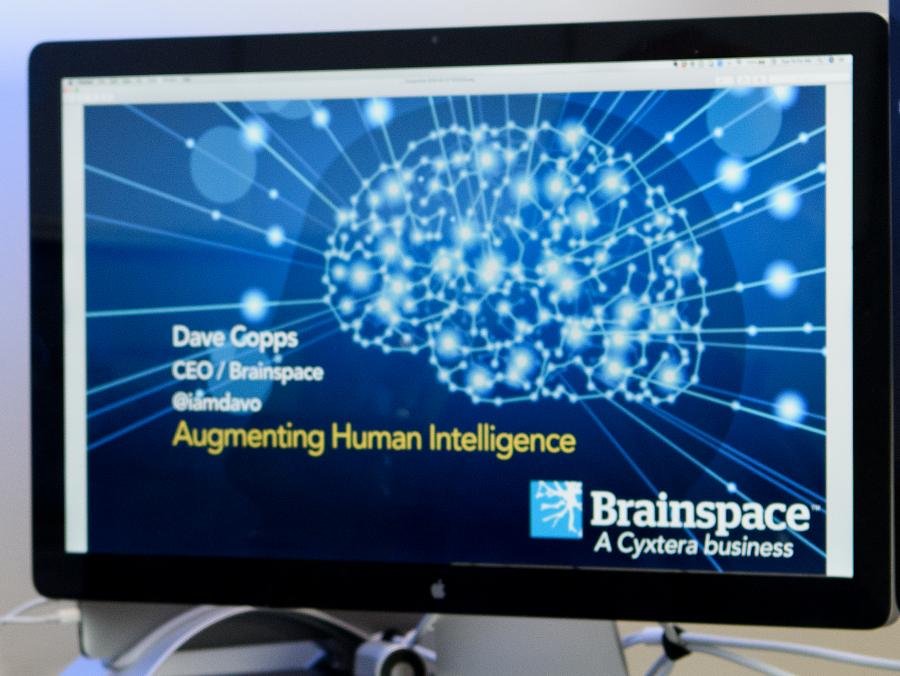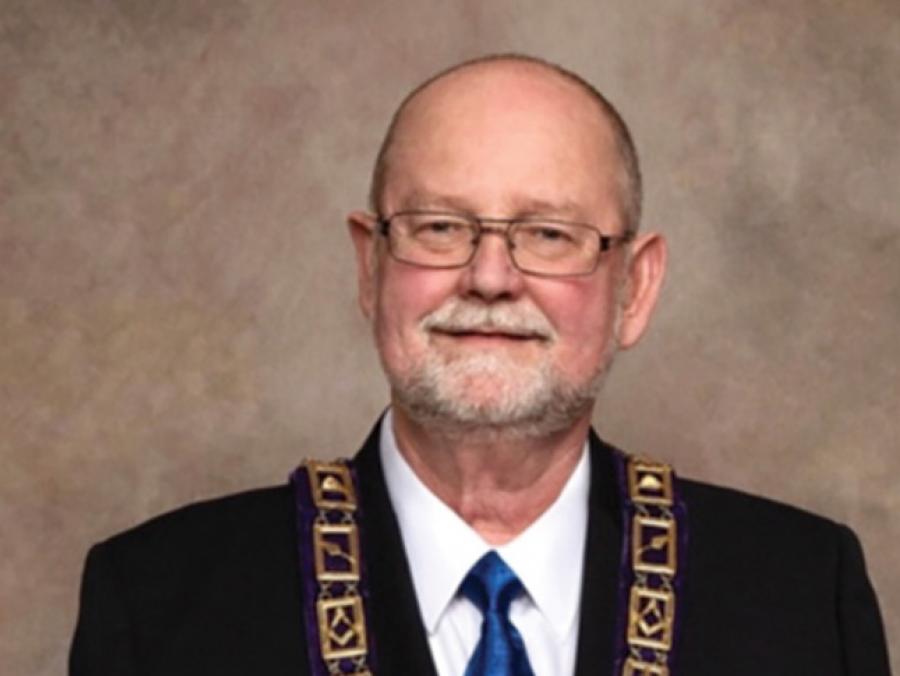
It's Wednesday, one of the two days each week Jeanette Castellano drops by The Admin Awards headquarters in Dallas. She's there to lend a helping hand to her daughter, Sunny Nunan ('95), the founder and CEO of the first and only company in the U.S. that pays public tribute to administrative professionals -- or as Nunan more accurately calls them, the "heart and backbone" of companies.
At 85, Castellano is only six years into retirement, having spent her career first as an executive secretary to a manufacturing CEO in Pennsylvania, then as a secretary for a homebuilding company in Texas, and finally as a receptionist at Epsilon until her hearing started to fade at age 79. But her impulse to take care of employees hasn't diminished. Today, she shows up with a peach pie, and offers everyone in the office a slice.
"My mom was the first person people would meet when they were coming to apply for a position," Nunan says. "She was the first person they would go to when they were getting divorced or found out they were pregnant or got fired or were leaving the company. I saw the impact she had on humanity, not just the business."
As her daughter's inspiration for The Admin Awards, Castellano's impact has spread, manifesting as a way to celebrate and support administrative professionals across the U.S. In fact, the pie is a much-needed sugar rush as the office prepares for the event's seventh launch the following day in Chicago, when the Windy City will join Dallas, Fort Worth, Houston, Denver, San Francisco and Silicon Valley as host locations.
Castellano has attended at least one ceremony in every market since The Admin Awards first launched in Dallas in 2012. Even though her mom hates the spotlight, Nunan still asks her to stand. After all, she says, it's about time admins got the attention and respect they deserve.
"Our mission is to build the very best recognition program for administrative professionals, but it's equally important to build a platform for empowerment, advocacy and professional development," Nunan says. "We want to ensure admins don't have to leave the profession to make more money or gain promotions."
Nunan says college wasn't a given for her as a poor kid growing up in New Jersey, and entrepreneurship seemed like a pipe dream. But at 20, after marrying a Marine from Texas and relocating to the Lone Star state, she enrolled at UNT in the spring of 1992.
Right after Christmas, her mother-in-law dropped her off at Clark Hall, where Nunan lived her first year while her then-husband served in Somalia. Some holiday leftovers brought on a bout of food poisoning, leaving the Texas transplant sick and isolated for days. After finally feeling well enough to eat, she discovered the hustle and bustle of Fry Street, including the legendary pizza joint The Flying Tomato -- and things began to look up.
"The college started coming to life," Nunan says. "I remember thinking: 'All right, I'm going to be OK here.'"
A general studies major, Nunan focused on marketing, communication and journalism. She graduated in three years, thanks in large part to supportive professors like the Mayborn School of Journalism's Jim Albright and Roy Busby, and what is now the Office of Disability Access, which provided accommodations for a learning disability. She gave birth to her first child, a daughter, two weeks before the last semester of her senior year -- and made it to campus for the first day of class.
"My experience at UNT gave me the confidence that I could do difficult things and persevere," says Nunan, who is the first person in her family to graduate from college.
That perseverance is what jumpstarted Nunan's career before her degree was even in hand. In her final semester, as she made copies of her senior project at a Kinko's in Lewisville, a sales exec who was struggling to finish a presentation for the next day approached her.
"If you stay here with me and pull an all-nighter," he told her, "come see me when you graduate, and I'll give you a job."
"We spent all night cutting and pasting presentations with glue and scissors," Nunan says. "After I graduated, I called him, and he gave me a job making $30,000 a year managing temporary employees at Sprint. I was hungry and eager to get a job, and it led to that first break."
Eventually, Nunan left staffing to become a senior account executive with Epsilon and then took on the role of district sales manager with Royal Caribbean. But she began to feel stagnant as part of large corporations, and found herself at D Magazine. There, she helped launch D CEO, where she was responsible for selling ads to pay for the publication. Events and awards programs were another important part of the magazine's revenue stream, and that's when the light bulb clicked on: Why were there no awards programs for professionals like her mom?
"I brought the idea to the magazine," Nunan says. "But their concern was that no one would nominate their admins for fear they'd be poached. And they didn't think it would make money."
So Nunan placed the idea on the backburner. She left the magazine in 2009 to launch her own company, Core 24, a business resources firm. But she just couldn't shake The Admin Awards.
"I thought, 'If I don't do it, someone else will do it, and they're not going to do it with the passion and heart I know it deserves,'" Nunan says. "So I started having meetings with executives and executive assistants where I asked, 'Do you want it? Do you think we need it?' I figured out pretty early on that there was definitely an interest in it."
"You don't know me," Nunan's email began, "but I'm the daughter of a secretary."
The correspondence was addressed to Colleen Barrett, a shining example of just how far an administrative professional can rise. Barrett began her career as a secretary to Herb Kelleher, the co-founder, Chairman Emeritus and former CEO of Southwest Airlines. She retired in 2008 as President Emerita of the company.
Nunan's goal was not only to garner Barrett's support for The Admin Awards, but to name the event's most prestigious award in her honor.
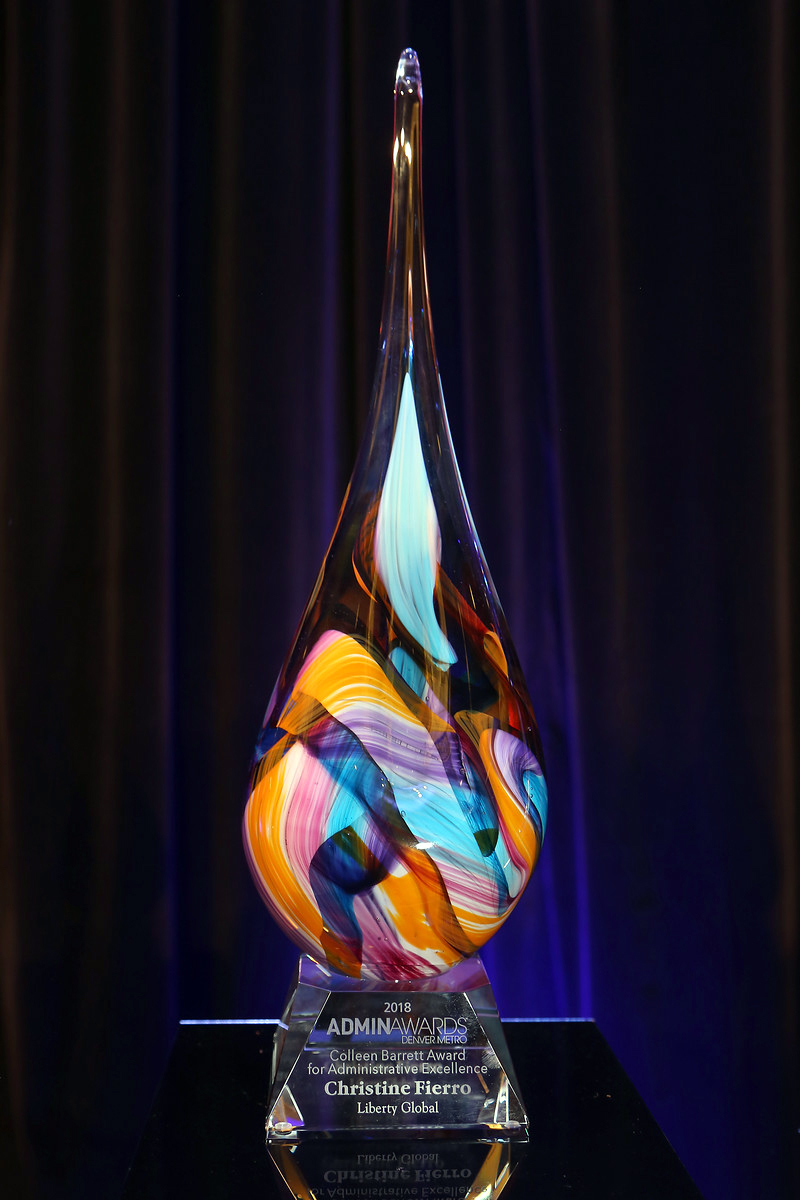
"It took me months to craft what I hoped was the perfect email," she says. "I clicked send, and within an hour, she emailed me back and said, 'I'm honored -- count me in.' The pressure was on to make her proud."
The first Admin Awards took place at Dallas' Westin Galleria in 2012. In the weeks leading up to the event, Nunan worried the venue was too big -- would she have to spread out tables to make it look fuller? But tickets sold out within a week, with more than 300 people in attendance and more than 100 nominations submitted by executives.
"What we saw was a tremendous amount of love in the room," Nunan says. "Executives attended to cheer on their admins. As hokey as it is to talk about love in business, that is what this program is: a tangible way to show appreciation for the people who do so much of the work."
Six years later, the awards -- which makes its profits from ticket sales and sponsorships -- continue to gain momentum. Companies like Southwest, Swarovski, Vail Resorts and JC Penney sponsor the event to ensure admins receive the red carpet treatment. Attendees, who have doubled in number, are registered to win prizes ranging from $500 to $22,000, such as jewelry, hair care and travel experiences. Now routinely referred to as the "Academy Awards for admins," the ceremony recognizes finalists -- determined by an independent board of judges -- in 10 categories, including Rookie of the Year, Leadership, Spirit and Achiever.
"We treat them like royalty, regardless of if they're nominees," Nunan says. "From the very beginning, at its heart, we wanted it to be less of a competition and more of a celebration."
Moving forward, Nunan says she's identified an additional 22 cities as viable markets for the awards. And she plans to continue championing the profession as a satisfying career choice that can lift women out of poverty and provide numerous opportunities to excel.
"It feels like a calling -- everything in my life has prepared me for this, especially seeing the incredible pride my mom had for her work her whole life," Nunan says. "One of our most basic human needs is to feel like we matter. I love to make people happy, and this program makes them happy. This is exactly what I'm supposed to be doing."





